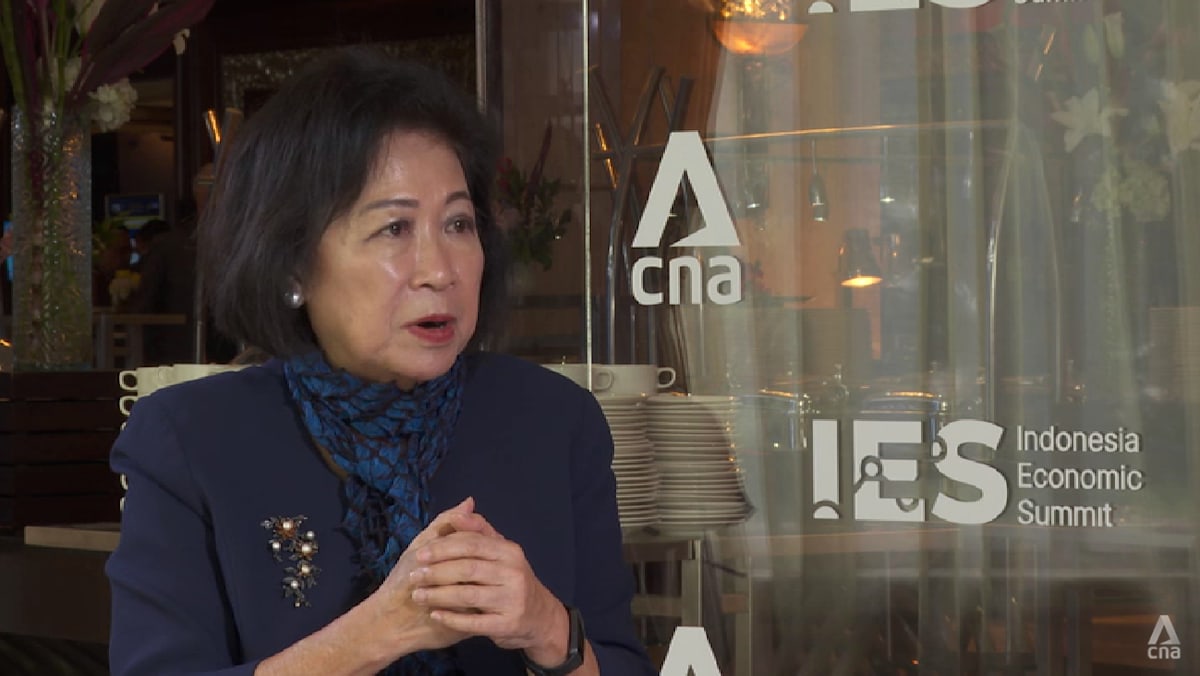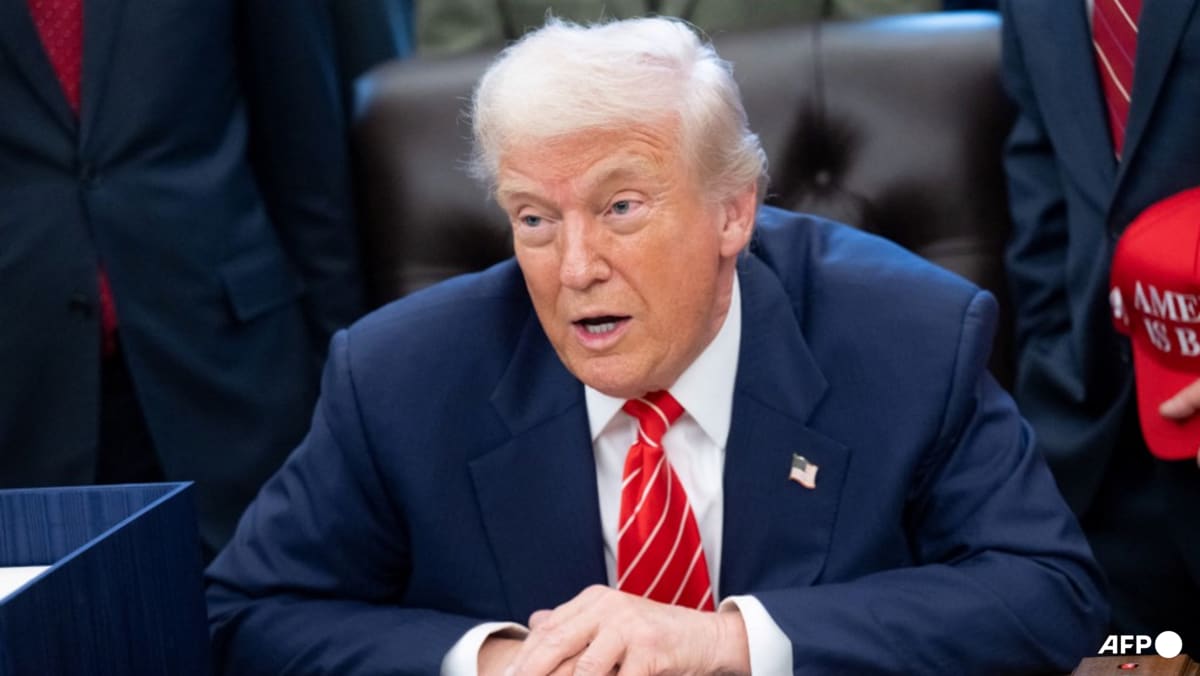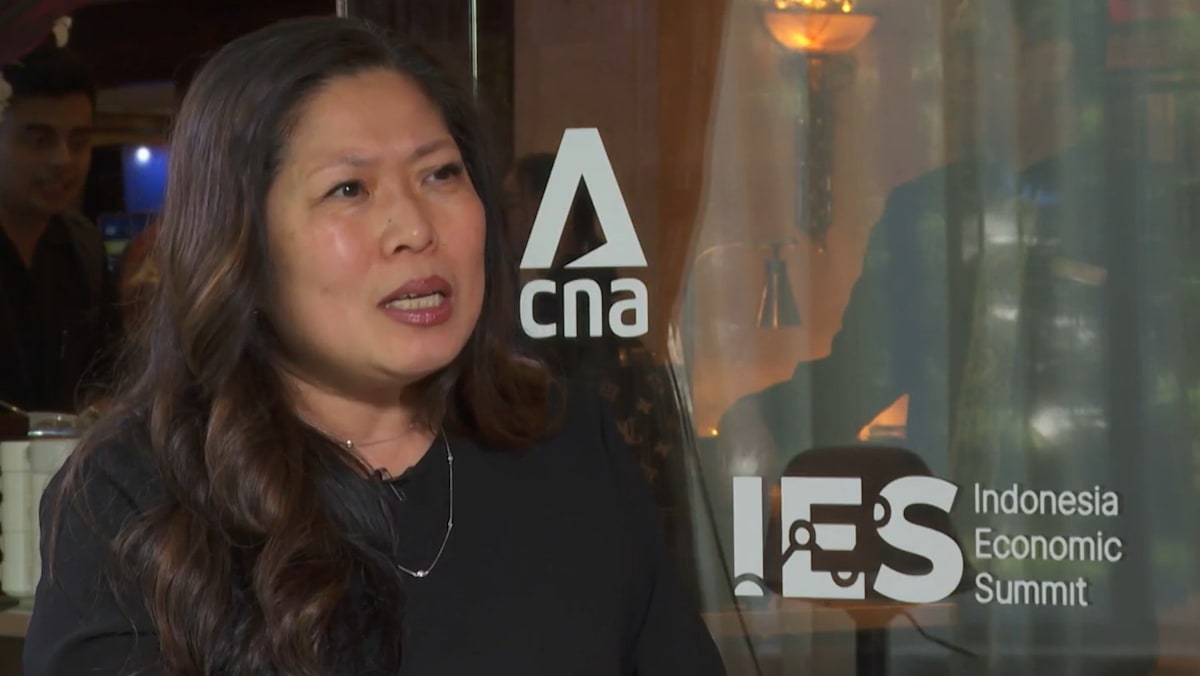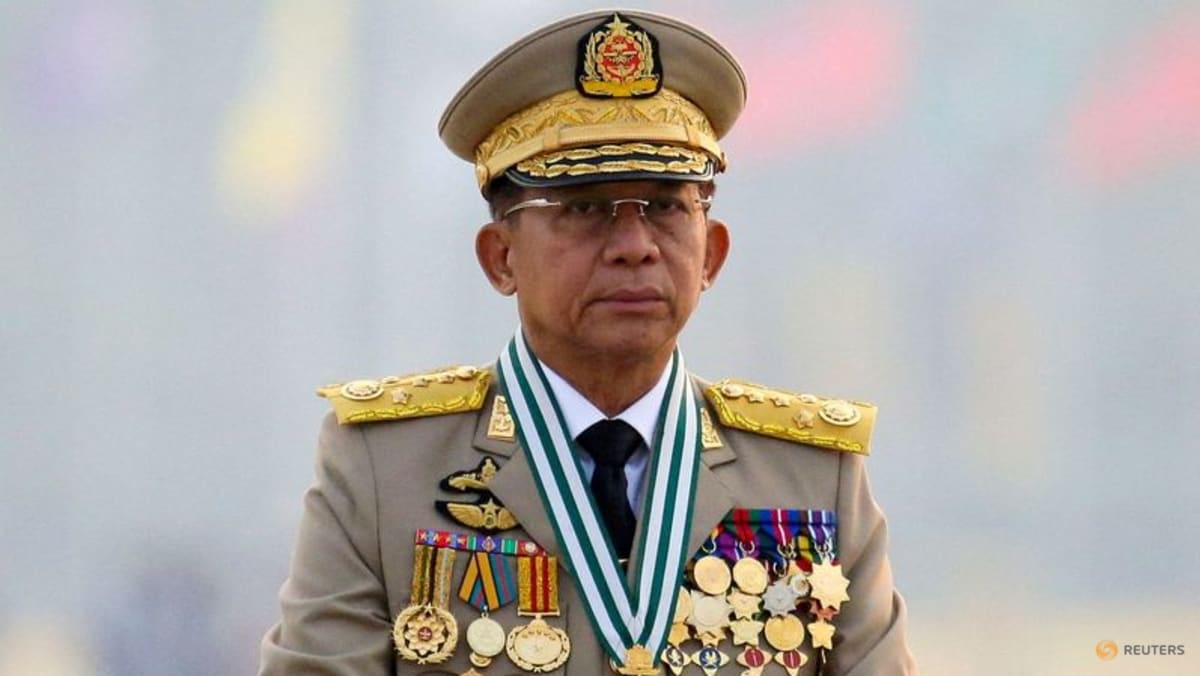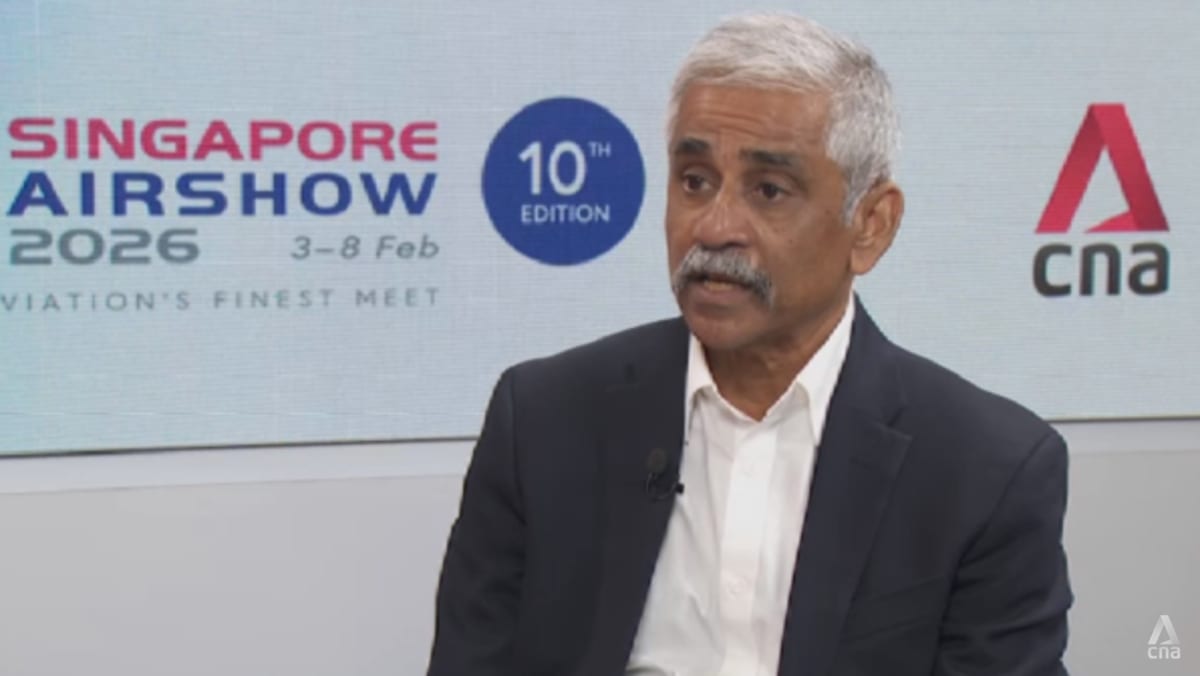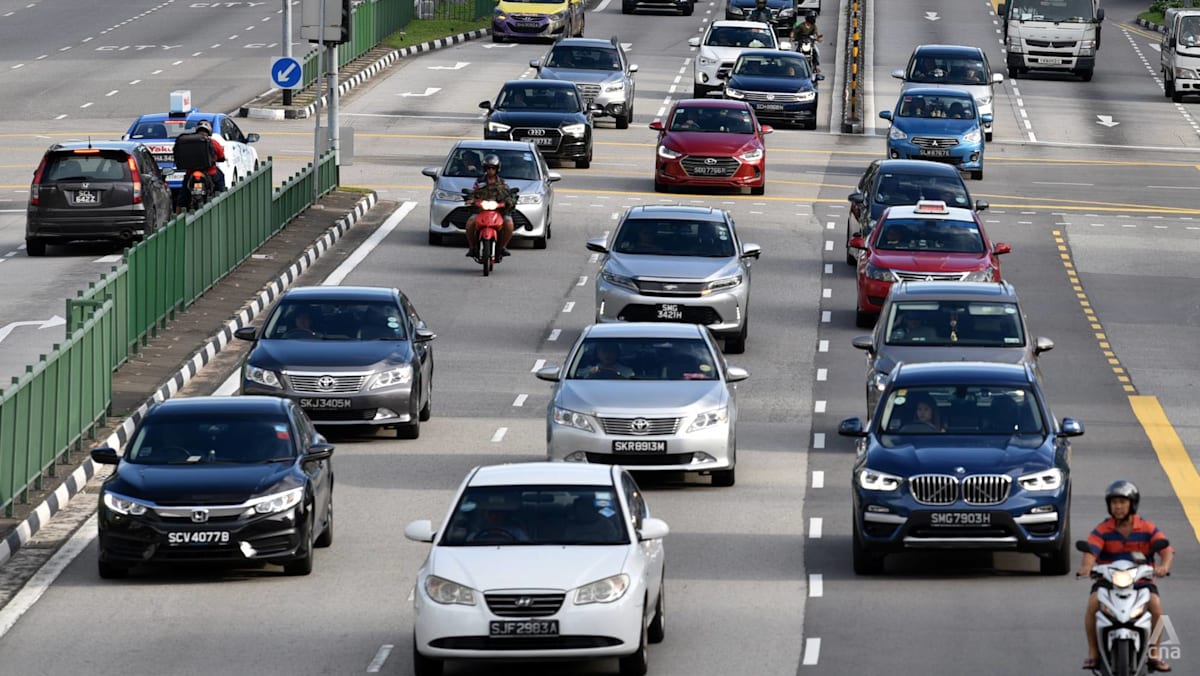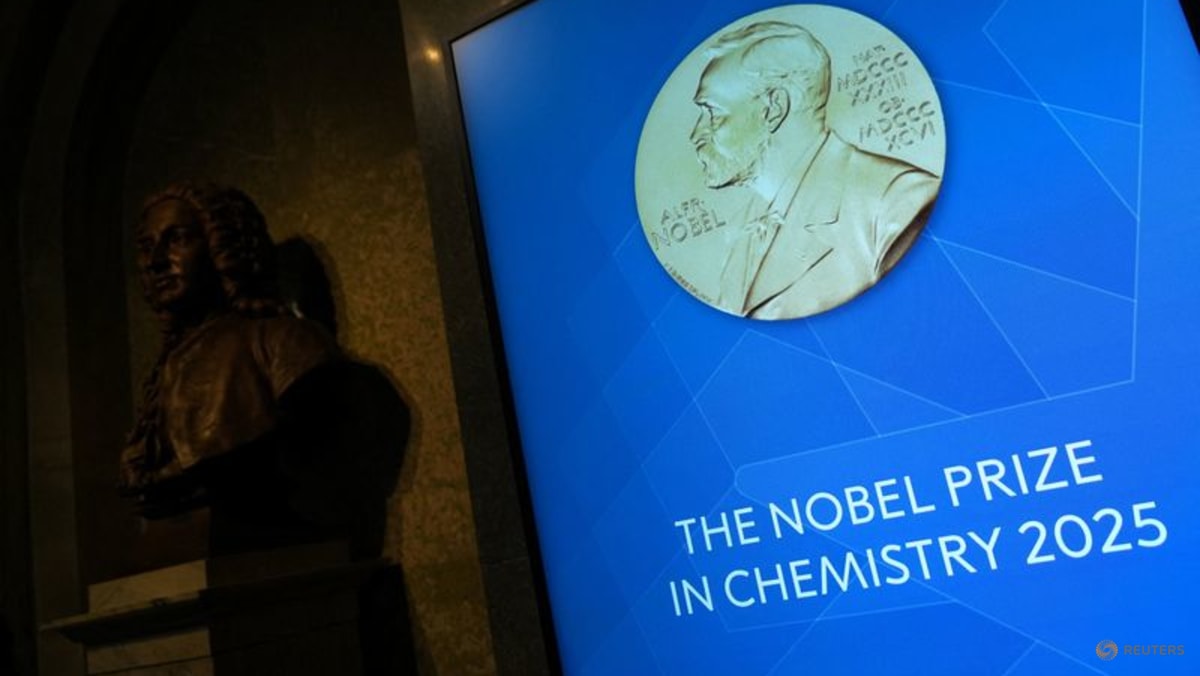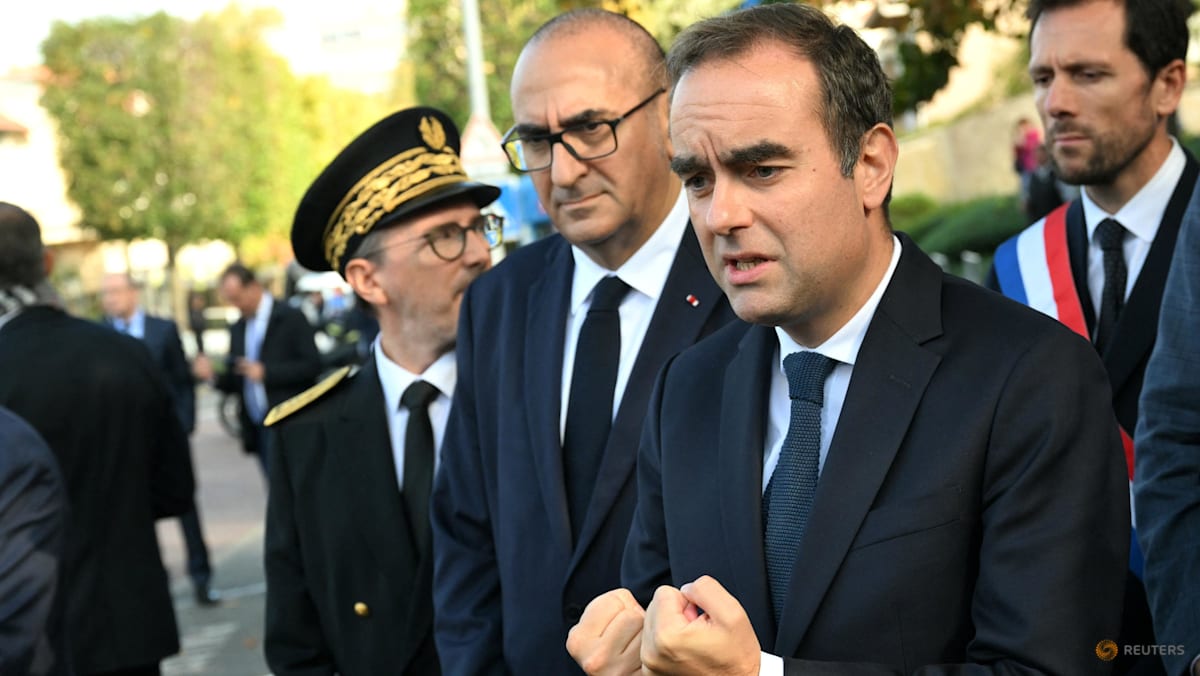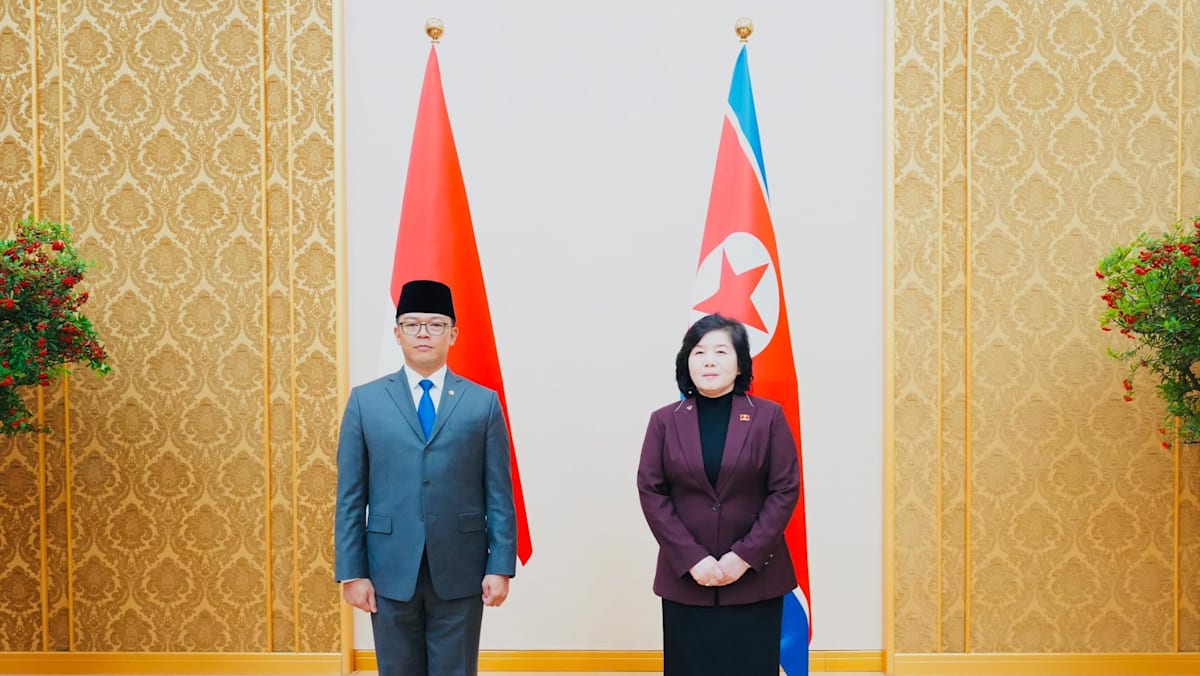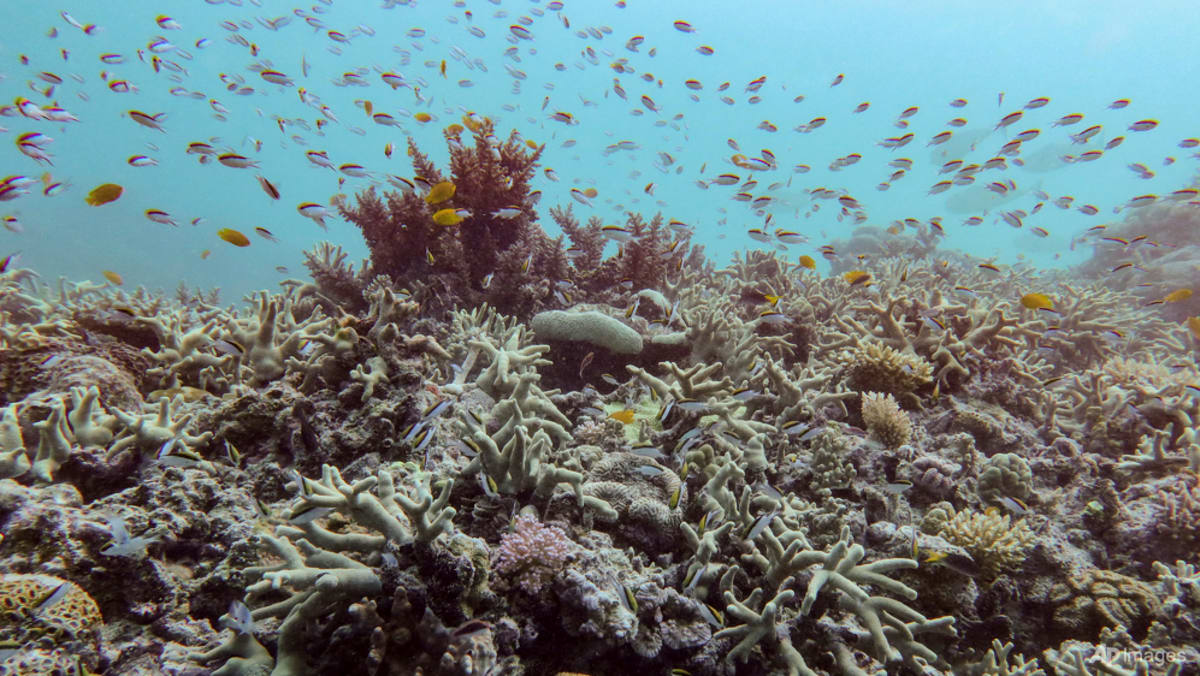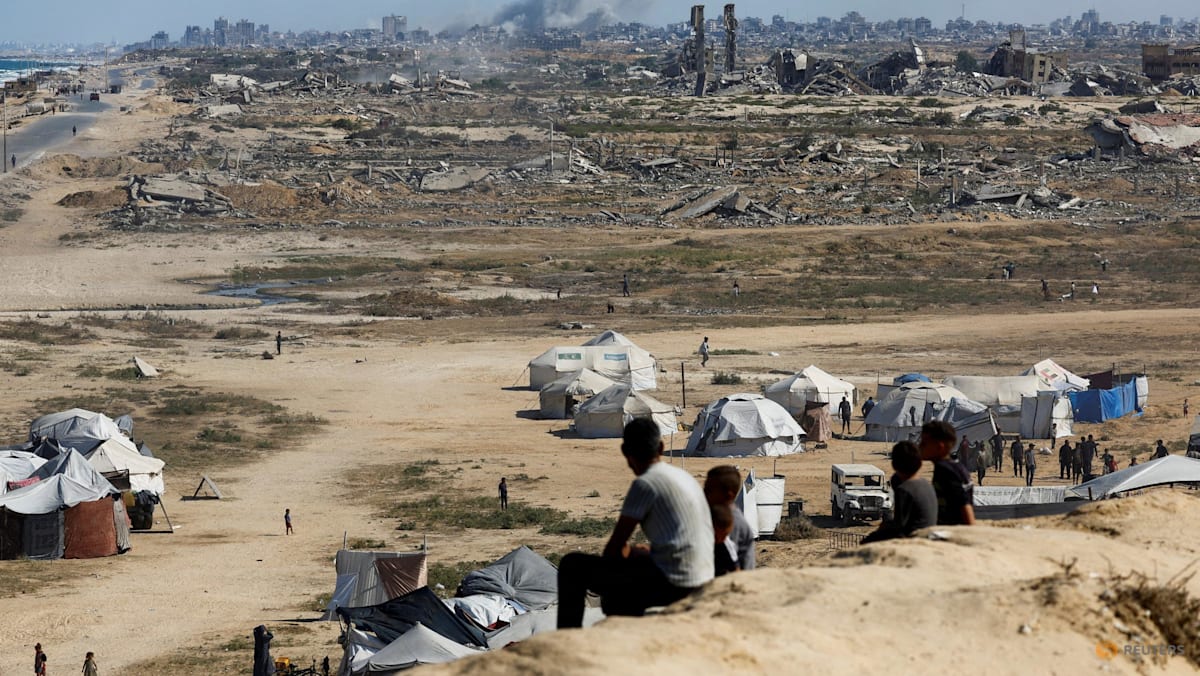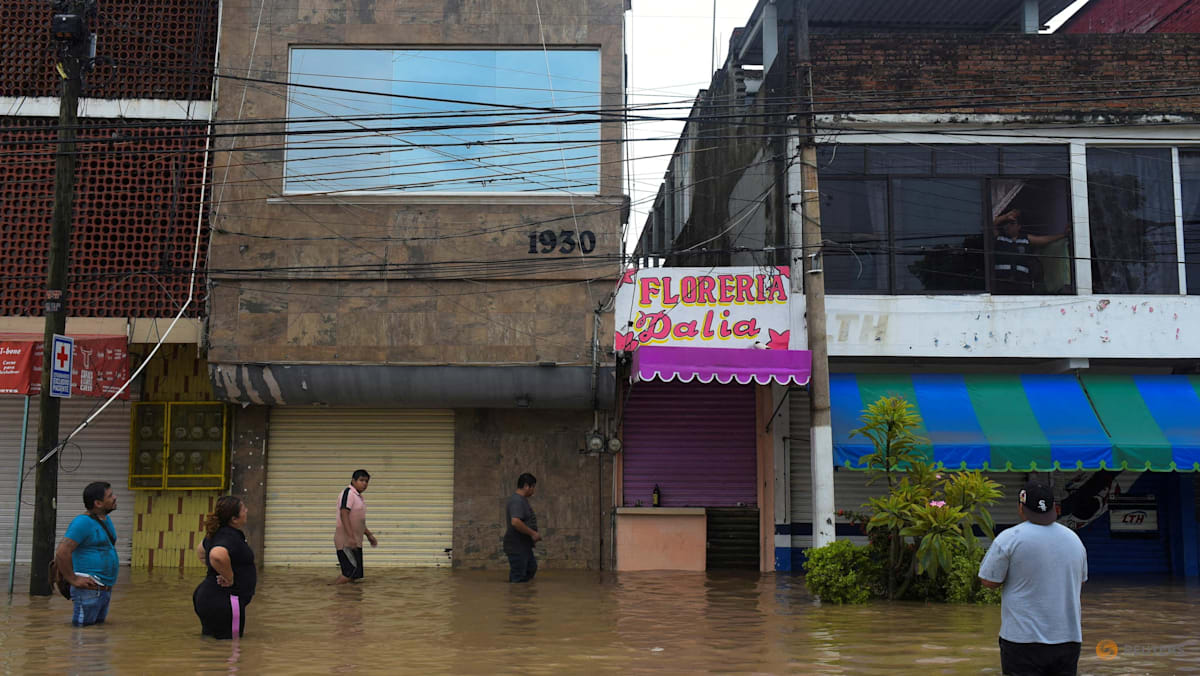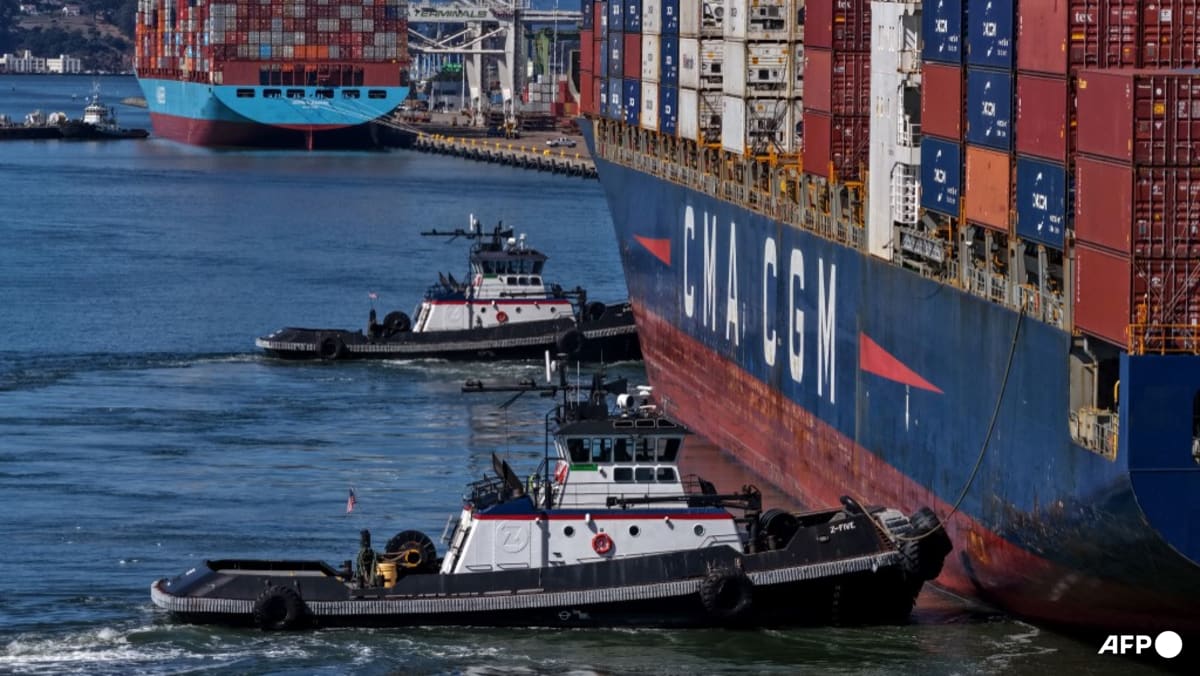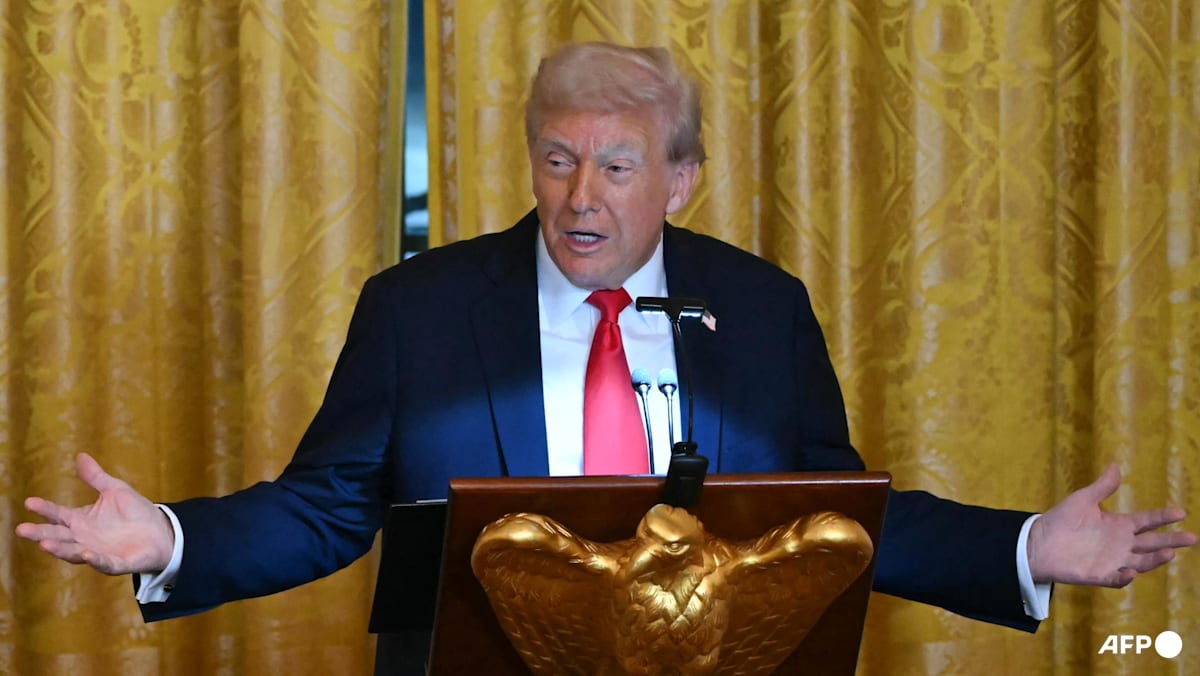KUALA LUMPUR: The upcoming three-day 47th ASEAN Summit and Related Summits in Kuala Lumpur from this Sunday (Oct 26) is poised to be one of the most significant regional gatherings in years, say analysts.
They point to two factors: A high-profile list of attendees and the summit taking place amid heightened geopolitical and economic tensions, especially between the United States and China.
Besides the leaders of the 10 member states of ASEAN, the attendees are set to include the likes of US President Donald Trump, Chinese Premier Li Qiang, newly sworn-in Japanese Prime Minister Sanae Takaichi, Brazilian President Luiz Inácio Lula da Silva, South African President Cyril Ramaphosa, Canadian Prime Minister Mark Carney, with Indian Prime Minister Narendra Modi also attending the summit virtually.
Analysts believe the high-profile visits can draw international attention to ASEAN and elevate its visibility on the global stage, but at the same time, there is a risk the summit would be defined by the presence of leaders such as Trump rather than ASEAN’s own priorities.
Khoo Ying Hooi of Universiti Malaya's International and Strategic Studies Department told CNA that the summit comes at a crucial time for ASEAN, which must now evolve from a "talk shop" into a community that acts with purpose.
“The challenge is not just to issue statements but to demonstrate that ASEAN remains capable of collective action in an increasingly polarised region,” she said.
Here are five key things that will dominate the summit, according to experts.
TRUMP’S VISIT TO KUALA LUMPUR
The biggest newsmaker at the summit will no doubt be Trump, said analysts, adding that his presence is significant for ASEAN and shows the bloc is an important diplomatic platform.
“Symbolically, it signals that Southeast Asia remains within Washington’s strategic orbit and that the US still recognises ASEAN as an important diplomatic platform,” Khoo said.
She said that Southeast Asian leaders will likely use the opportunity to seek some form of commitment or cooperation, particularly in areas such as trade, technology, and defence.
Joanne Lin, co-coordinator of the ASEAN Studies Centre at ISEAS–Yusof Ishak Institute in Singapore, echoed the same views, telling CNA that Trump’s visit is significant, especially as US presidents have not been attending the regional summit regularly in recent years.
The last US president to do so was Joe Biden, who attended the 2022 meetings in Phnom Penh, Cambodia.
During his first presidency from 2017 to 2021, Trump made only a single appearance at the annual summit, attending the 2017 meeting in Manila, Philippines.
“His presence this time sends an important signal, given how difficult it has been for world leaders to gain direct access to him since the tariff measures were announced,” said Lin, referring to sweeping tariffs on US imports that Trump first announced in April.
The US is the largest source of foreign direct investment in the bloc.
However, analysts also cautioned against reading Trump’s visit as a signal of his long-term commitment to ASEAN, with Khoo noting that Trump’s diplomatic style tends to favour short-term and transactional engagements.
“At this stage, the visit appears more symbolic than strategic. Unless this visit is followed by concrete policy frameworks, development funding, or long-term diplomatic engagement, it’s likely to be a one-off event,” she said.
Lin said she believes that Trump’s interest seems to centre on the Cambodia–Thailand peace deal, which some see as an opportunity for him to burnish his Nobel Peace Prize credentials.
The two Southeast Asian neighbours had been locked in a border dispute, with tensions escalating in July into their deadliest military clashes in decades, killing more than 40 people and forcing around 300,000 to flee their homes.
Both sides agreed to a ceasefire on July 28 after talks in Kuala Lumpur mediated by Malaysian Prime Minister Anwar Ibrahim, though Trump has also claimed credit for the deal.
“I ended seven wars, and in all cases, they were raging, with countless thousands of people being killed. This includes Cambodia and Thailand, Kosovo and Serbia, the Congo and Rwanda — a vicious, violent war that was — Pakistan and India, Israel and Iran, Egypt and Ethiopia, and Armenia and Azerbaijan,” Trump said during his address to the United Nations General Assembly in New York City on Sep 23.
Some media reports said that one condition Trump set for attending the ASEAN summit was for him to preside over a ceremonial signing of a peace agreement between Thailand and Cambodia.
“It seems that Trump’s attendance looks more like a spotlight moment in Kuala Lumpur than a long-term commitment to Southeast Asia or ASEAN centrality,” said Lin.
Separately, Abdolreza Alami of Universiti Teknologi MARA (UiTM)’s Faculty of Communication and Media Studies told CNA that Trump’s visit was primarily a geopolitical move for the US to counter China, rather than a genuine commitment to ASEAN.
“Given Trump's history of prioritising ‘America First’ and transactional deals, his presence is more a geopolitical opportunism than a genuine commitment. Its importance stems not from valuing ASEAN itself, but from competition with China in Asia and a desire for a high-profile photo opportunity,” he said.
He also said that given Trump’s unpredictable nature, any sudden statement or policy shift from him could easily divert attention from critical ASEAN issues and reduce the summit to a single US-centric dimension.
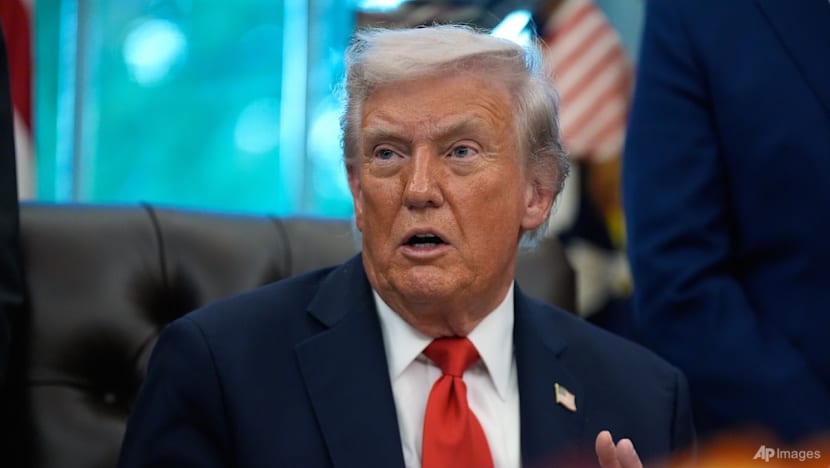 President Donald Trump answers questions from reporters during a Diwali celebration in the Oval Office at the White House on Oct 21, 2025. (Photo: AP/Manuel Balce Ceneta)
President Donald Trump answers questions from reporters during a Diwali celebration in the Oval Office at the White House on Oct 21, 2025. (Photo: AP/Manuel Balce Ceneta)
SITUATION IN GAZA
Analysts said that given Trump’s presence, another topic that would likely feature high on the agenda is the situation in Gaza.
ASEAN’s foreign ministers have welcomed the ceasefire between Israel and Hamas brokered by Trump, while emphasising the need for a permanent ceasefire as well as immediate and sustained delivery of humanitarian assistance to all those in need in the conflict zone.
Anwar had said that the situation in Gaza would come up in talks with Trump and that despite reservations people had about him, the US president “did a major service in stopping illicit bombings in Gaza”.
On Oct 8, Trump had announced a 20-point peace proposal for Gaza, with a ceasefire coming into effect on Oct 10.
Khoo, however, said that Washington’s position on Gaza has been polarising globally, and ASEAN leaders may find themselves walking a fine line between moral conviction of speaking up for Palestine and strategic pragmatism of not offending the US given its backing of Israel.
Demonstrations against Trump are set to take place in the heart of Kuala Lumpur on Friday and Sunday to protest his administration’s perceived role as a principal enabler of Israel’s military actions in Gaza.
During a briefing with the media on Wednesday (Oct 22), Anwar said that the protests would be allowed to carry on but that Malaysia would have to guarantee the safety of the area and the visiting leaders.
Khoo said that if ASEAN could maintain a united, principled stance on Gaza while managing its ties with the US, it would signal an evolution from being a passive observer to a moral actor as a regional community capable of engaging global crises with coherence and conscience.
“But if the issue is sidestepped for the sake of diplomacy, it would underscore the lingering gap between ASEAN’s rhetoric and its willingness to act collectively when it matters most,” she said.
The death toll in Gaza has reached nearly 70,000 since the conflict began with Hamas's Oct 7, 2023 attack on Israel, which killed approximately 1,200 people and resulted in 251 hostages being taken, according to Israeli figures.
TIMOR LESTE TO BECOME ASEAN’S 11TH MEMBER STATE
The summit will also mark a major milestone as Timor-Leste achieves full membership of ASEAN, completing a 14-year process since its initial application to join the bloc.
The country gained independence from Indonesia in 2002 after 24 years of occupation, and is set to become the bloc’s 11th member with analysts terming this as a significant and momentous occasion.
In 2023, ASEAN members agreed to adopt a roadmap for Timor-Leste's accession to the bloc.
Lin of the ISEAS–Yusof Ishak Institute said Timor-Leste’s membership is historic as it would mark the culmination of more than a decade of discussion and preparations.
“Its accession effectively completes the map of Southeast Asia, bringing every country in the region into the ASEAN fold,” she said.
Khoo added that Timor-Leste’s admission carries both symbolic and practical implications.
While it demonstrates ASEAN’s inclusivity and its willingness to embrace a smaller, developing democracy, expansion could also add complexity to the bloc’s already slow consensus-based decision-making.
“In short, we can say that the move is momentous. It completes ASEAN geographically and politically, but its success also will depend on how ASEAN supports Timor-Leste’s integration rather than leaving it to navigate the machinery alone,” she said.
ASEAN was established in August 1967 by five founding countries - Indonesia, Philippines, Malaysia, Singapore and Thailand.
The last country to become a full ASEAN member was Cambodia, which joined the bloc in April 1999.
Timor-Leste Prime Minister Xanana Gusmao had said that joining ASEAN will give his country access to a market of more than 600 million people.
ASEAN is the fifth-largest economy in the world with a combined gross domestic product of US$3.9 trillion.
SOUTH CHINA SEA CODE OF CONDUCT
The issue of overlapping territorial claims in the South China Sea, a source of significant friction between China and several ASEAN nations, will be discussed at the Kuala Lumpur summit. But analysts are not very hopeful that a long-awaited code of conduct will be finalised.
Since the 1990s, the regional bloc has been trying to negotiate a framework to manage disputes in one of the world’s most contested waterways with China. But talks have repeatedly stalled due to various reasons.
Abdolreza said that expectations for a breakthrough on the code of conduct are low, with a concrete timeline for the code’s finalisation unlikely, as China prefers to maintain strategic ambiguity.
“The resulting document, even if agreed upon, is highly expected to be non-binding and primarily focused on crisis management and practical cooperation, rather than containing substantive, enforceable clauses that genuinely constrain aggressive actions or address sovereignty disputes,” he said.
In 2023, ASEAN and China agreed on guidelines to accelerate negotiations, with a goal of completing the code within three years.
Khoo said that ASEAN and China may agree to “accelerate” discussions or reaffirm a general timeline toward completion, but concrete, binding provisions are unlikely.
“The code of conduct will probably remain aspirational rather than enforceable,” said Khoo.
Lin said that most of what appears in the leaders’ statements would probably echo the usual, well-worn phrases about maintaining peace, stability, and freedom of navigation.
“Some countries, particularly the Philippines, may use their interventions to express concern over the deteriorating situation in the South China Sea, but that’s as far as it’s likely to go,” she said.
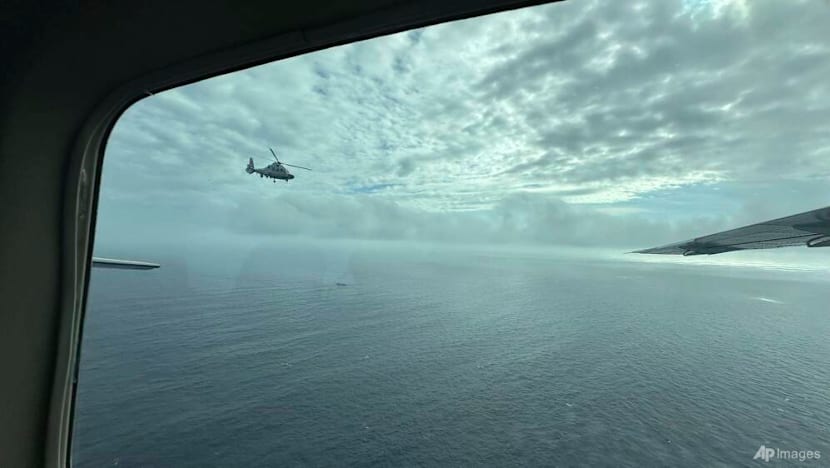 A Chinese military helicopter flies close to a Philippine Bureau of Fisheries and Aquatic aircraft above Scarborough shoal on Feb 18, 2025. (Photo: AP/Joeal Calupitan)
A Chinese military helicopter flies close to a Philippine Bureau of Fisheries and Aquatic aircraft above Scarborough shoal on Feb 18, 2025. (Photo: AP/Joeal Calupitan)
DISCUSSIONS ON MYANMAR
With Myanmar’s military junta announcing plans to hold elections in December of this year, there will be renewed talks on the situation in the country. However, observers do not expect much to move on this aspect.
Abdolreza said he expects the status quo to persist with increased diplomatic frustration as the Five-Point Consensus remains unimplemented and largely failed.
The Five-Point Consensus is an ASEAN-led peace plan for Myanmar, which includes an immediate cessation of violence, constructive dialogue, humanitarian aid, a special envoy to facilitate a mediation process, and a visit by an ASEAN envoy to the country.
Myanmar has been in crisis since the military seized power in a coup in early 2021 against the elected government of Aung San Suu Kyi.
“ASEAN will likely issue a stronger condemnation of the violence and push for an enhanced role for the special envoy to engage all stakeholders, including the National Unity Government (NUG),” said Abdolreza, referring to the shadow government which largely represents the resistance against the coup.
“However, due to the (ASEAN) principle of non-interference, any dramatic shift or immediate, tangible progress toward a resolution is not expected.”
Khoo said that the Five-Point Consensus on Myanmar has become a test of ASEAN’s credibility, with the military junta showing little compliance to it.
At the same time, ASEAN remains divided on how far it should go in applying pressure, she said.
“There could probably be discussions on engaging actors such as the NUG but I don’t foresee this to be discussed in the official meetings. The larger question is whether ASEAN can afford to let this issue fester without eroding its moral and institutional authority,” she said.





